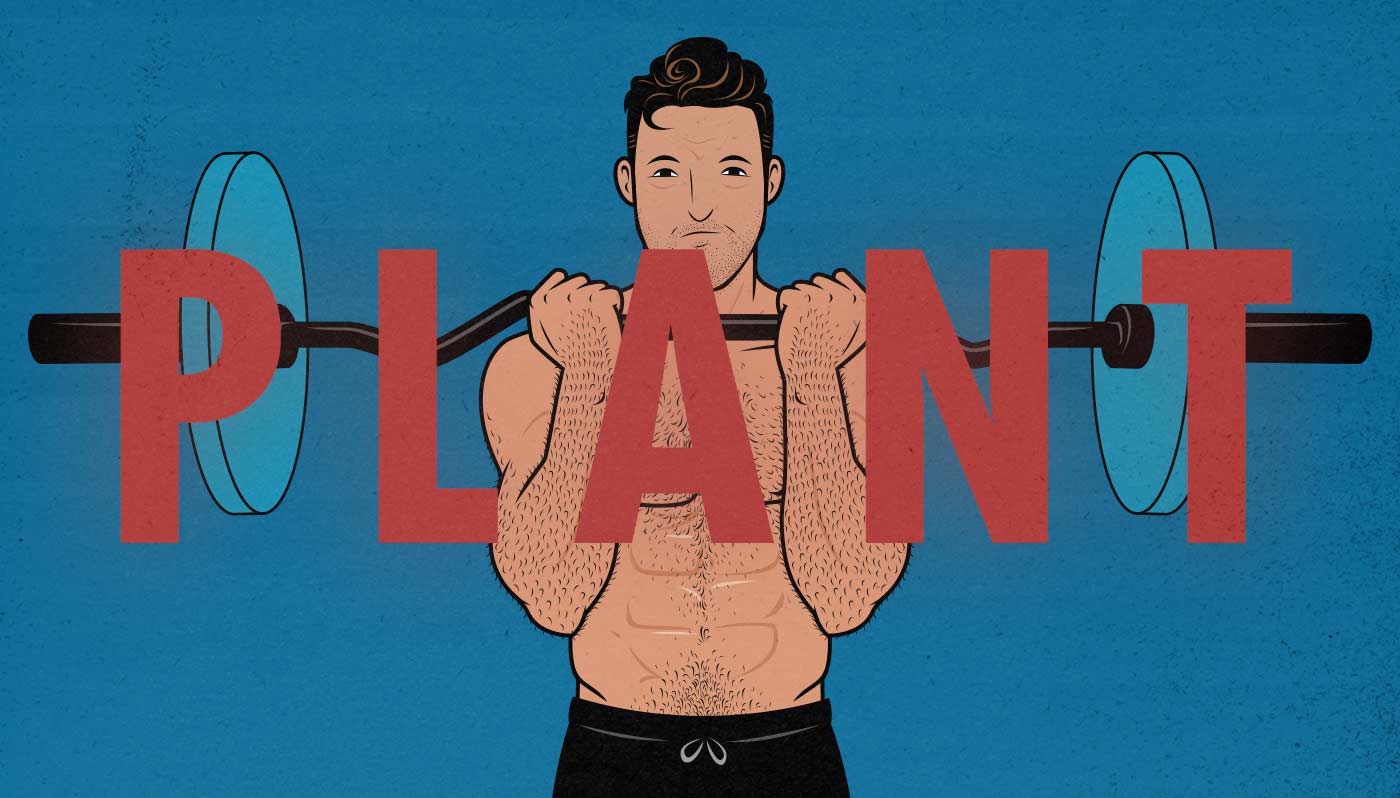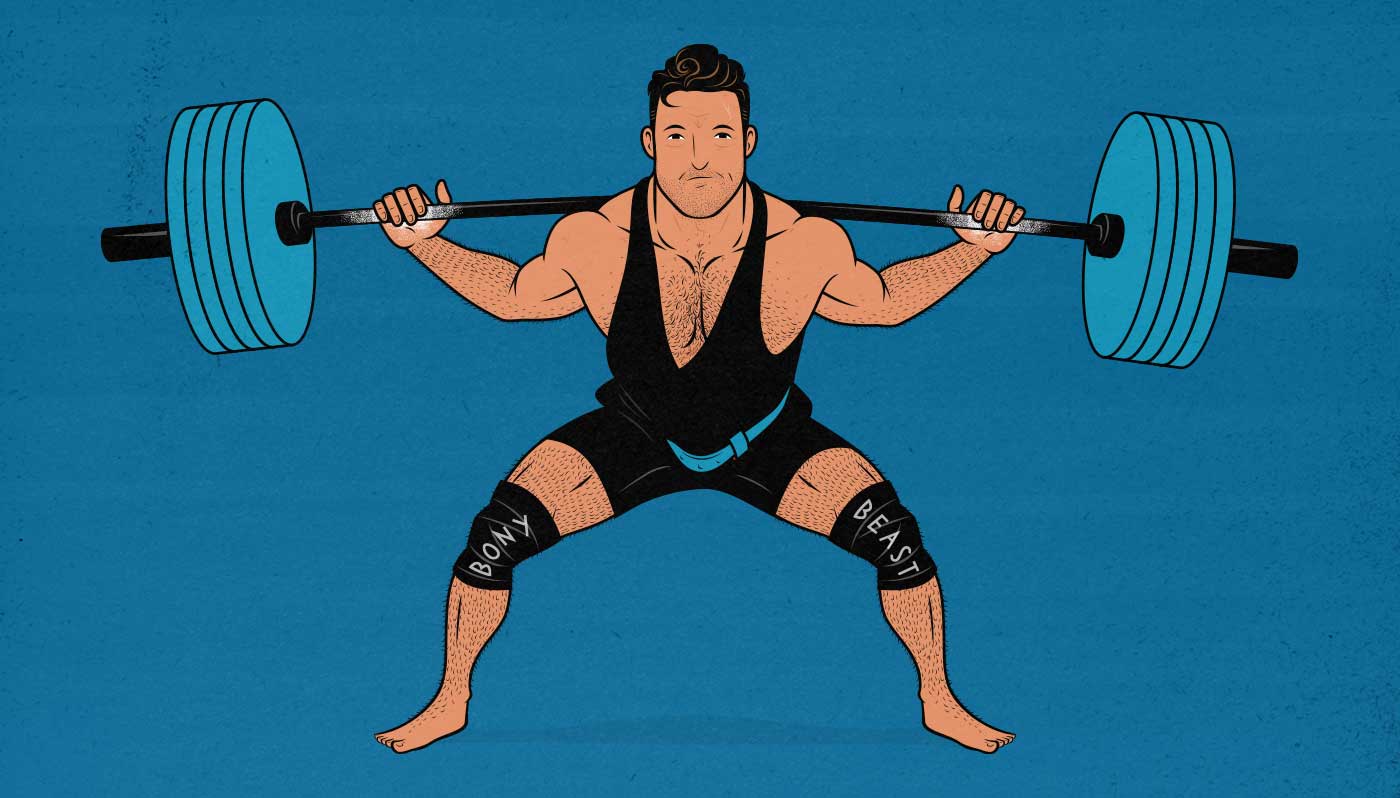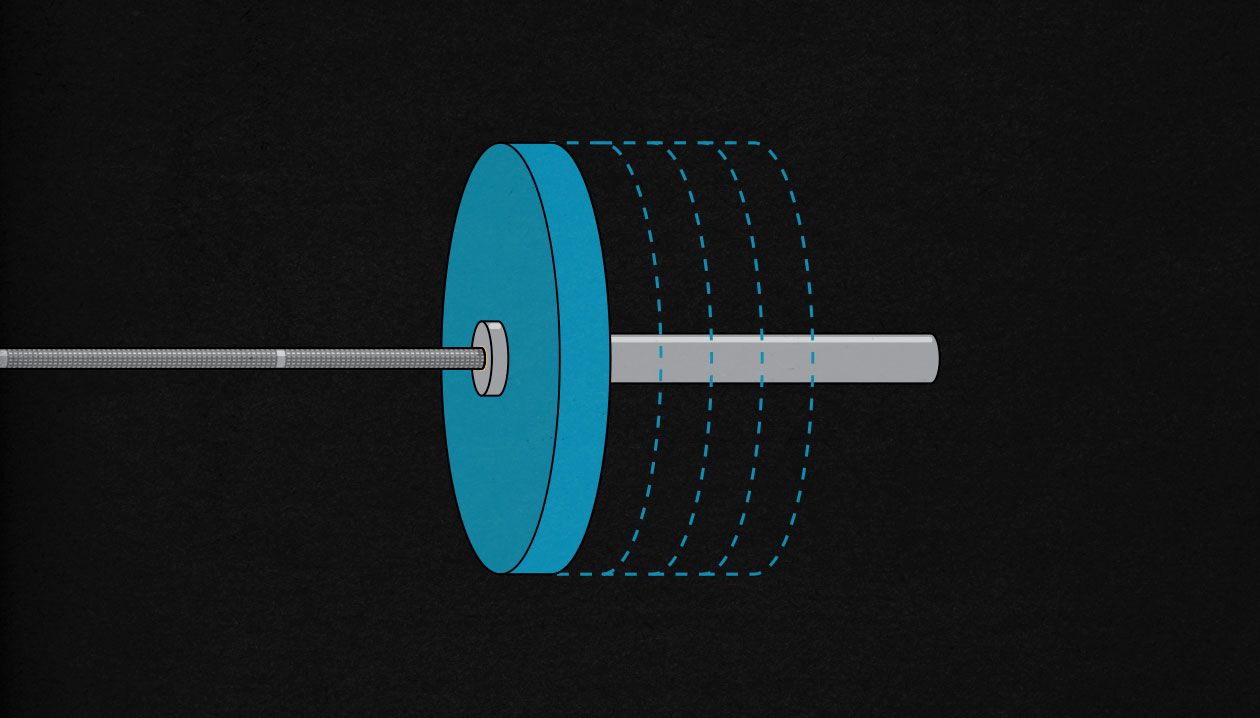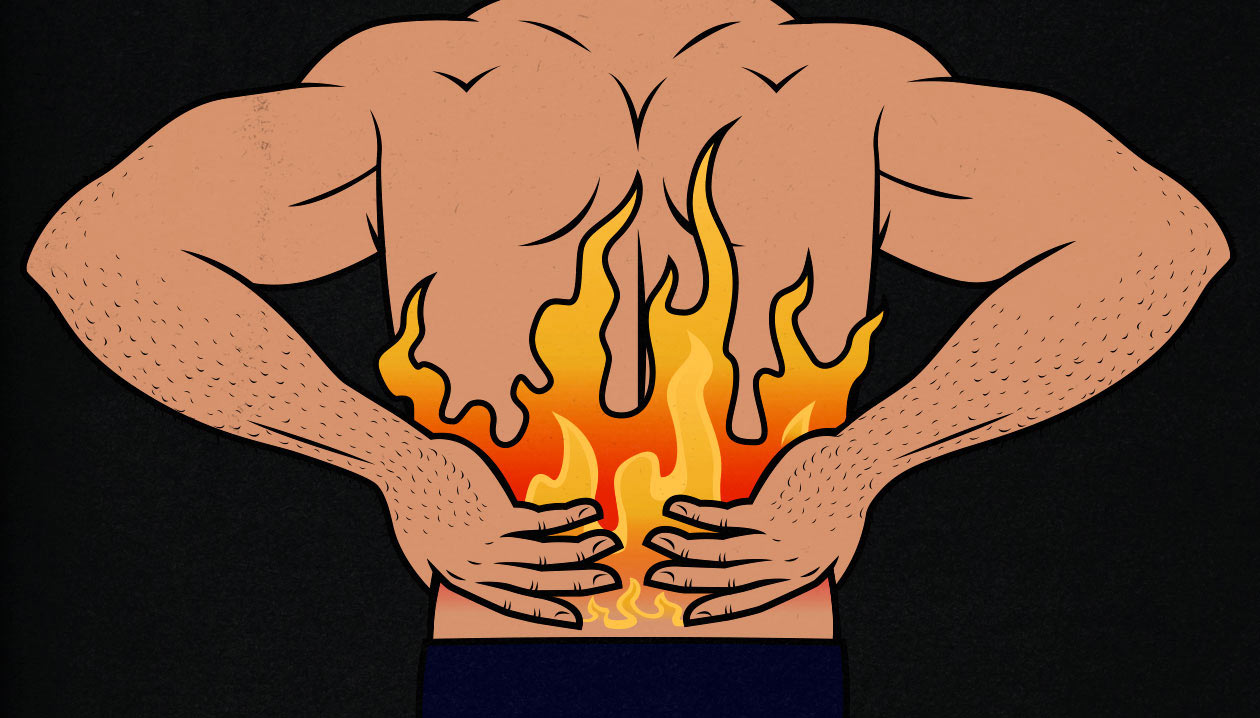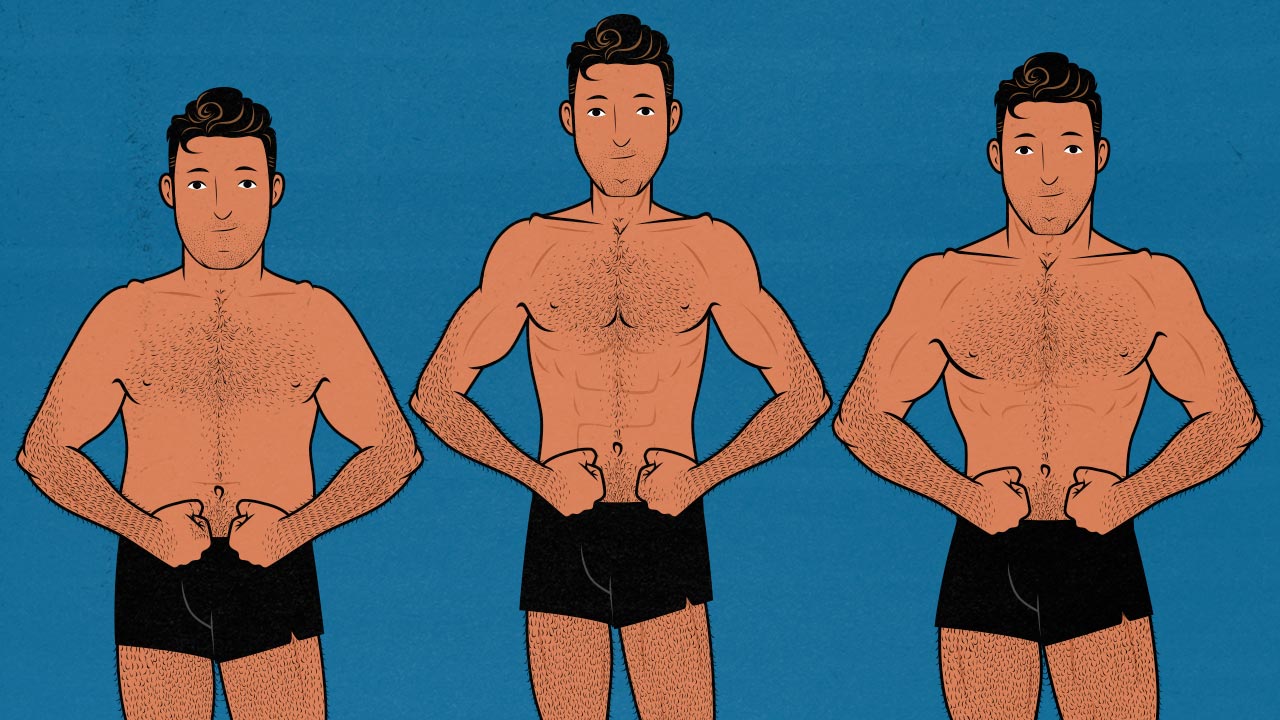Posts by Marco Walker-Ng, BHSc, PTS
The Skinny Guy’s Guide to Fixing Bad Posture
It’s common for skinny guys to have crooked posture. Part of that is because we’re skinny. We lack the muscular strength to hold ourselves up straight. The other problem is we often have longer spines that are harder to stabilizer.
The good news is both of these issues are the same issue. You can think of posture as weakness in the muscles that are supposed to hold your body in the proper position. If you can learn how to lift weights with good posture, you’ll strengthen these muscles, and your posture will improve.
My expertise is in helping thinner athletes bulk up, including college, professional, and Olympic athletes. Fortunately, these postural techniques work just as well on everyday skinny guys like us.
Dive InHow Much Sugar is Okay While Bulking?
Sugar is often criticized for causing weight gain. It’s technically a calorie surplus that causes the weight gain. But sugar can certainly make it easier to get into a calorie surplus, and so increasing our sugar intake can indeed lead to weight gain.
What if we’re trying to gain weight? For a lot of us hardgainers, the idea of sugar causing accidental weight gain sounds like a potential benefit, and it can be. In fact, when Marco first started helping me bulk up, one of the first things he did was have me add some sugar (dextrose) into my workout shakes. It’s a common trick that strength coaches use with high-level athletes to help them get into a calorie surplus. Marco cut his teeth by helping college, professional, and Olympic athletes build muscle, so it was the first thing he thought of when I told him that I was having trouble gaining weight.
Look at drinks like Gatorade, designed for the Gators from the University of Florida to keep them fueled up while playing sports. It’s full of sugar. Or look at the recovery drinks we see at the supplement stores. Again, full of sugar (or starch). The same is true with weight gainers. Their main ingredient is usually either maltodextrin or dextrose—both of which are quickly broken down into sugar as soon as we drink them. Sugar is the main ingredient in bulking supplements and sports drinks.
In the general public, though, most skinny guys take the opposite approach. They’ve heard that processed sugar will raise our blood sugar levels and can lead to various health issues, including, of course, fat gain. So when they start bulking up, they intentionally try to reduce their intake of processed sugar. Now, there’s certainly no problem with that, and most health experts recommend keeping our sugar intake quite low anyway—often limiting sugar to 25% of our total calories but sometimes as low as 10% of our total calories (study).
However, the idea of limiting our sugar intake to 25% of our calories is based on the idea that eating more processed sugar can lead to nutrient deficiencies. If we eat more candy, that can mean eating fewer fruits and veggies. But that’s not all that relevant to us skinny guys who are intentionally driving ourselves into a calorie surplus to build muscle. It’s especially irrelevant if we’re getting that added sugar from sources that are rich in micronutrients, such as from fruit, fruit juice, honey, and milk. In that case, even though our sugar intake would be increasing, we’d be consuming more micronutrients.
Furthermore, sugar has a different impact on skinny guys who are underweight and exercising than it does on people who are overweight and sedentary. We don’t have the same issues controlling our blood sugar levels, removing most of the downsides to our general health. And, when combined with a good lifting routine, raising our intakes of sugar can lead to leaner muscle gains than increasing our intakes of fat.
So, what effect does sugar have on skinny guys as we bulk up? How much added sugar is helpful. How much is harmful? And how can we make it easier to bulk up quickly and leanly?
Read MoreHow to Bulk on a Vegan Diet (Plant-Based Bulking)
Vegans can build muscle just as quickly and effectively as anyone else, provided they eat a proper plant-based bulking diet. Vegans tend to be healthier than the average person (study), and plant-based diets lend themselves quite well to building muscle. After all, many of the best bulking foods are plants: bananas, oats, rice, legumes, leafy greens, carrots, garlic, and so on (study).
We’ve been helping skinny guys bulk up for over a decade now, and our vegan members have always done just as well as everyone else.
Still, there are a few common mistakes vegans make. And there are some extra considerations to keep in mind. Let’s go through all of it.
Dive inIs Strength Training Good for Building Muscle?
Is strength training good for building muscle? Some of the most popular programs that skinny guys use to bulk up, such as StrongLifts 5×5 and Starting Strength, are designed for gaining strength. But what if we’re trying to become bigger and stronger? Are strength training programs good for building muscle?
If we look at a recent study comparing low-rep training strength training against moderate-rep hypertrophy training, we see that hypertrophy training stimulates more than twice as much muscle growth per set. Does that show that hypertrophy training is better for building muscle?
There’s new research coming out showing that doing metabolic training in higher rep ranges increases muscle growth by increasing the amount of fuel in our muscles—sarcoplasmic hypertrophy. Lower-rep training is thought to stimulate muscle growth via myofibrillar hypertrophy. Does that mean that strength training builds harder, denser muscles?
Are the big three powerlifting lifts—the back squat, the bench press, and the deadlift—the best lifts for building muscle? And how crucial are isolation lifts when bulking up?
Read MoreMuscle Size and Strength Standards for Ectomorphs
How much muscle and strength can an “ectomorph” gain? Plenty of research has looked into rates of muscle and strength gain, but what if you’re a naturally skinny guy? Are there different strength standards for us?
Skinny guys do start off with less muscle mass, but what effect does that have on how quickly we can grow? Do we have an extended period of newbie gains, allowing us to gain muscle and strength more quickly? Or does having less muscle mass indicate that our genetics are poor, causing us to build muscle more slowly?
We have thinner bones and narrower frames, and we tend to start off weaker. Does that limit how strong we can become?
In this article, we’ll go over two main questions from an ectomorph’s perspective:
- How much muscle can an ectomorph gain in his first year? Most guys can expect to gain around twenty pounds of muscle during their first year of lifting weights. How does that change for an ectomorph?
- How strong can an ectomorph get after a year of lifting weights? With a good workout routine, most guys are able to bench press 225 pounds (100kg), squat 315 pounds (140kg), and deadlift 405 pounds (180kg). Are these numbers realistic for ectomorphs?
- What’s an ectomorph’s lifetime muscular genetic potential? If we lift for a lifetime, how big can we hope to get?
- How strong can an ectomorph get with a lifetime of serious training? If we develop our muscles to their full potential, how strong can we hope to become?
Let’s dive in.
Read MoreDOMS: Is Muscle Soreness A Sign of Muscle Growth?
When I first started lifting weights, I was absolutely crippled by muscle soreness. I would wince when sitting in chairs, struggle to lift my knees high enough to climb stairs, and barely be able to get glasses from the cupboard. I loved it. I was sick and tired of being skinny, and I thought muscle soreness was a sign that my muscles were growing.
A couple of months later, my soreness faded away to almost nothing. I could sit down in a chair without everyone in the room grimacing. I could even hold myself upright in it. I started to feel less like a burning puddle of oil, more like a human being. It was awful.
My gains had started to slow down as well, and I was convinced that my waning muscle growth was connected to my fading muscle soreness. Was my fading muscle soreness causing my plateau?
Muscle soreness is intimately connected to muscle growth, but most have no idea how it works, making the process more confusing. So in this article, let’s go over a few of the more common muscle soreness questions that we get:
- What’s the link between muscle soreness and muscle growth?
- How much muscle soreness is good?
- Should you work out if you still feel sore from the last workout?
- Can muscle soreness interfere with muscle growth?
- What can you do to reduce muscle soreness?
- Can you build muscle without getting sore?
- What if a muscle never gets sore?
- What if your joints or tendons get sore?
- What if your lower back gets sore?
The Skinny Guy’s Guide to Body-Fat Percentage
As a skinny guy, it can be hard to figure out what your body-fat percentage is. Imagine the average man. A DEXA scan measures him at 24% body fat. Then he sits in the BodPod, which puts him at 26%. A bit of a discrepancy, but he can be reasonably confident he’s between 24–26%.
Now you walk in, and DEXA puts you at 9%. Not only are you lean enough to bulk aggressively, but you’re also leaner than most professional athletes. You may even want to gain a bit of fat. But when you step into the BodPod, it measures you at 22% body fat. That’s a bit high. You might want to lose some fat.
You’ve spent a few hundred dollars getting the two most accurate tests, and you don’t even know if you have too much or too little fat. The typical margin of error is something like 5% body fat in either direction (article). That means if you get a reading of 20%, you’re probably between 15–25% body fat. That isn’t always the case, though. With skinny guys, DEXA and BodPod can be off by up to 13%!
So in this article, we cover why your body-fat percentage matters, how to measure it properly, and then run through some real-life examples (with pictures).
Read MoreThe Skinny Guy’s Guide to Natural Testosterone Production
This is a guest post written by Dr. Robin Bhavsar, a physician with a specialization in urology (the field of medicine concerned with testosterone). He works at St. Joseph Health. You can see his credentials here.
After bulking up with our Bony to Beastly Program, he wrote a guide in our coaching community that became immensely popular with our members. He also answered many of their questions, including ones like:
- Does being skinny mean I have low testosterone?
- Am I skinny-fat because I have low testosterone?
- How can I increase my natural testosterone production?
In this article, Dr. Bhavsar will explain everything a skinny guy should know about their own natural testosterone production.
Read the ArticleThe Male Body Types: Ectomorph, Endomorph, Mesomorph
In bodybuilding and fitness communities, people commonly use the terms endomorph, mesomorph, and ectomorph when talking about male body types. Endomorphs are purportedly stockier and chubbier, mesomorphs are said to be broader and more muscular, and ectomorphs are supposedly thinner and leaner.
Or that’s what people say, anyway. Men do have varying heights and bone structures, and have different propensities for being overweight or underweight, but do these traits really combine together to form three distinct body types? Is it correct to call a naturally skinny guy an ectomorph?
And even if we do use these slang terms to sort people into different body types, do the different body types benefit from different diets and workouts? For example, is there such a thing as an ectomorph workout or an ectomorph bulking diet? Or do all body types benefit from the same workouts, diets, and lifestyles?
Read MoreHow to Know If You’re an Ectomorph
Most of us ectomorphs describe ourselves as being naturally skinny and we tend to have a hard time gaining weight. More specifically, though, ectomorphs are usually defined by having narrower shoulders, lankier longer limbs, thinner bones, and a lower body-fat percentage. Being an ectomorph is also associated with having a higher metabolism and a smaller stomach.
If you’re curious about whether you’re an ectomorph or not, there are a few simple tests that you can do. All you need to do is measure the width of your frame, the thickness of your wrists, and the length of your muscle bellies. You can do it at home in just a couple of minutes.
We’ll also cover how the various ectomorph traits affect our ability to build muscle, what our genetic muscular potential is, and how we should approach bulking up.
Dive In


